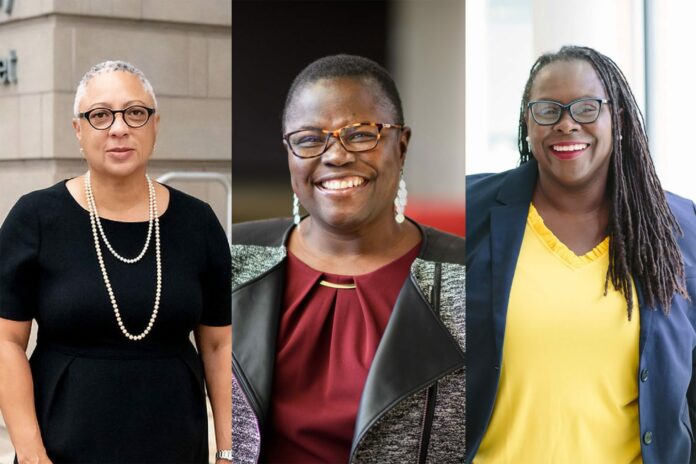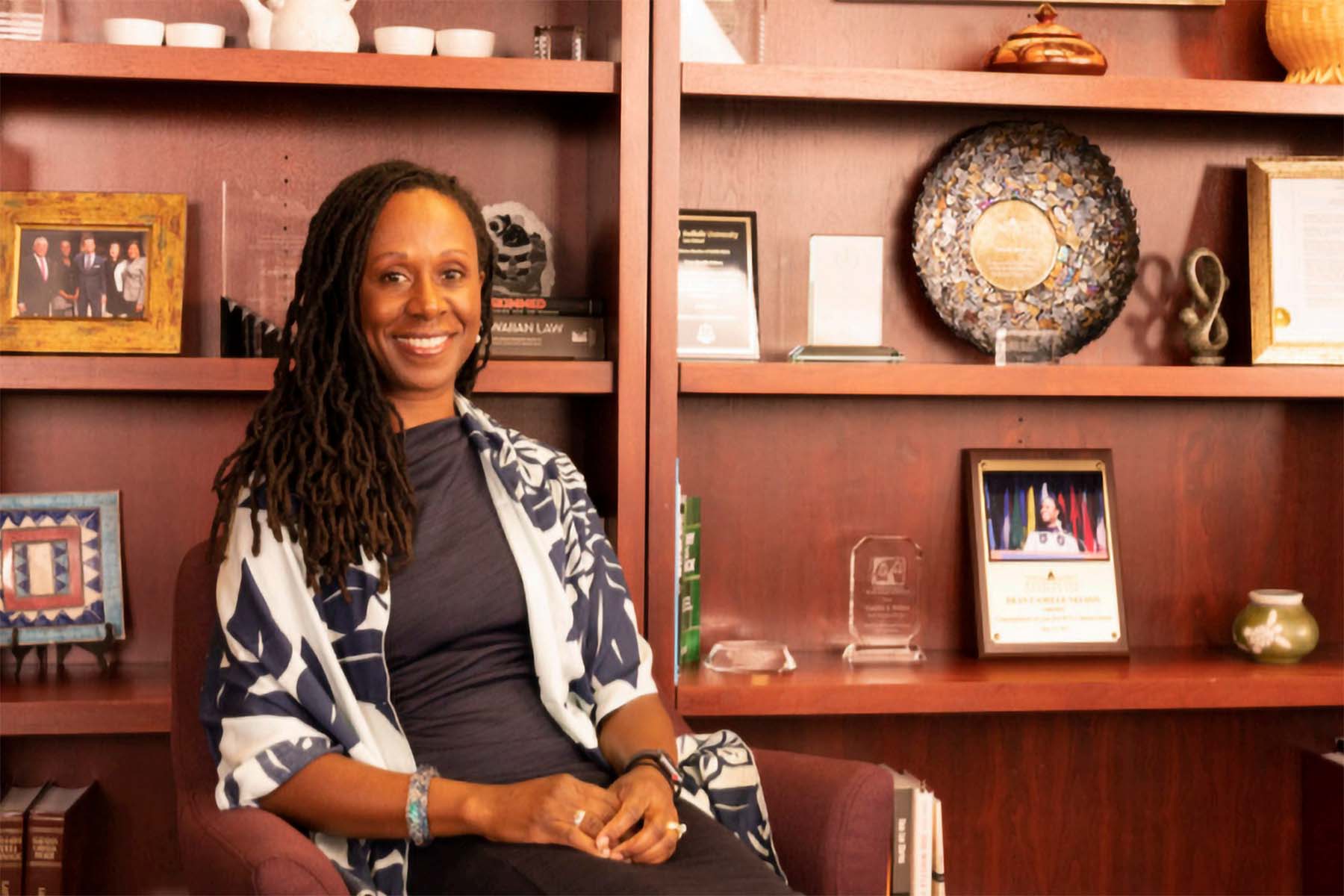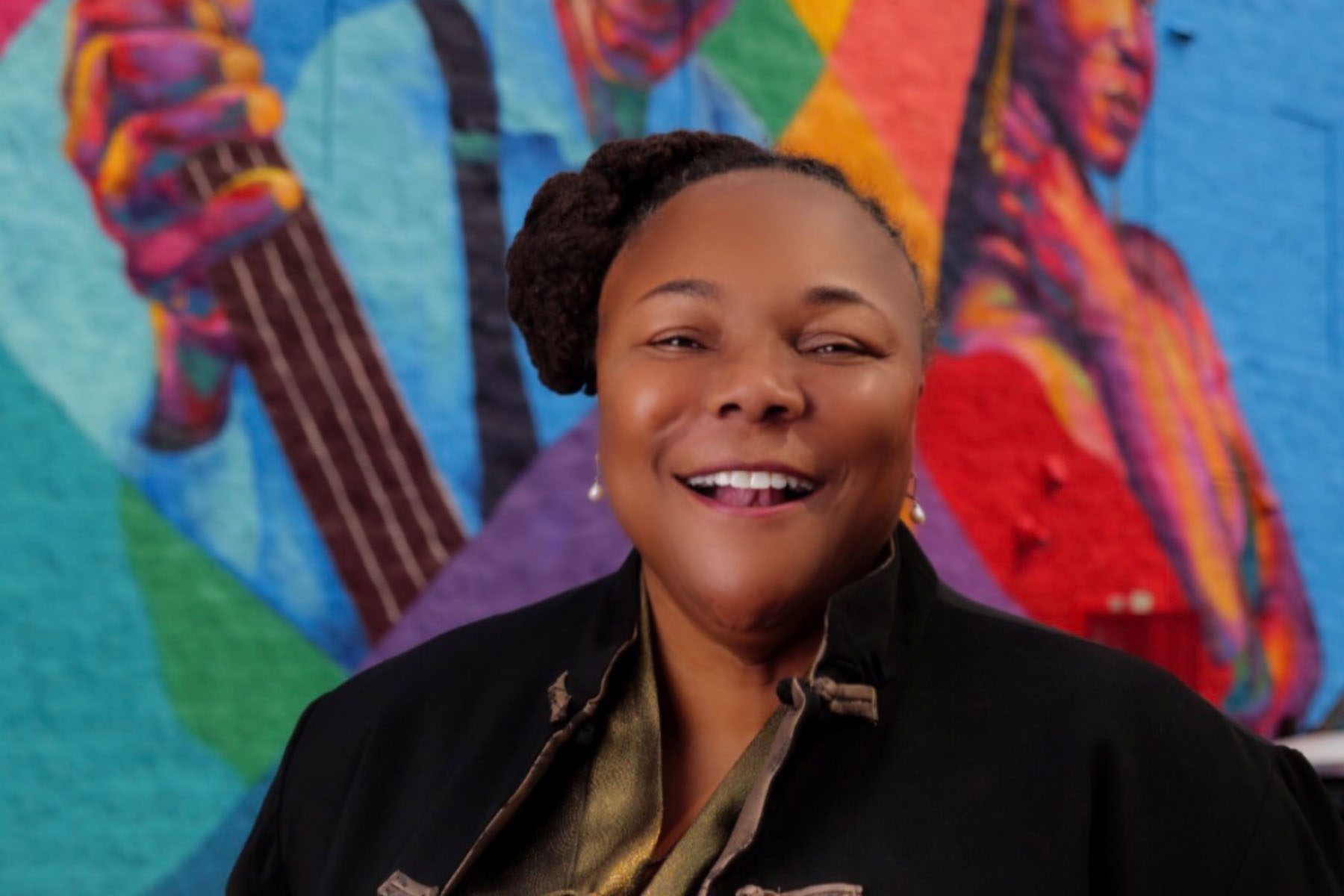
A rising cohort of new leaders want to help their institutions better understand the country’s history and how it inextricably shapes the law today.
By Candice Norwood, Breaking News Reporter, The 19th
When Camille Nelson was appointed dean of Suffolk University Law School in 2010, few other Black women worked there or held similar positions at other law schools.
“I was the only Black woman there, and the sense of always being alone is one that I think people should not underestimate,” Nelson, now dean of the William S. Richardson School of Law at the University of Hawaii at Manoa, told The 19th. The reality she faced, which is common for many women of color, can create feelings of isolation, insecurity and frustration. For years, Nelson was conscious of how her actions might affect Black women who wished to follow.
“The sense that one possible mistake will reverberate beyond oneself and impact the ability of future generations coming up behind me to have the same opportunities weighs heavy,” she said.
But she is less alone now. Last year, the number of Black women leading American law schools reached a high of 28. Two are interim deans. Twenty-one of them were appointed dean for the first time within the last four years. A number of them are also the first Black woman to hold their position.
These Black women deans are guiding their faculty and students through a time of contentious debates about academic teachings about systemic racism and inequities. For many of them, part of that leadership means helping their institutions better understand the country’s history and how it inextricably shapes the law today. The 19th spoke with 11 of those women about their rise to these roles, how they navigate today’s political divisions and the strong bonds they share with one another.

For Kimberly Mutcherson, holding a dean position is an opportunity to help instill ways of teaching the law that she did not see while studying at Columbia Law School in the 1990s. Law schools tend to teach the law uncritically, she said, which can seem removed from reality for students from communities that have been marginalized by it. It is also difficult to push back against an institution or professors who do not see themselves as part of the problem, she said.
“This is an experience that lots of new law students of color still have,” said Mutcherson, who is currently co-dean at Rutgers Law School in Camden. “You’re sitting in a classroom, you’re talking about a case, and it’s totally obvious to you, as a woman, as a person of color, that there’s something going on underneath what we’re talking about in class. And yet, you don’t get that opportunity to say, ‘I don’t think they would have brought this case against a White woman,’ you know?”
Mutcherson became the first woman, first LGBTQ+ and first Black law dean at Rutgers in 2019, when the number of other Black women deans noticeably began to grow. A database maintained by Mississippi College School of Law breaks down the race or ethnicity of 207 law school deans. Currently, 89 of those are White men, 54 of them are White women, 13 are Black men, 28 are Black women, seven are Hispanic or Latino men, five are Hispanic or Latina women, four are Asian or Pacific Islander men, and three are Asian or Pacific Islander women. Gender-diverse people are not listed in the database, and other groups make up less than 1 percent of law school deans.
As more Black women obtain these positions, many have been able to push for broader change in their respective schools, offer one another support navigating a predominantly White male industry, and collaborate when the need arises on shared interests, such as advocating for stronger anti-racism resources in their schools.
“There are enough of us and we are influential enough that if we decide that we want to do something, then something’s going to get done. They can’t ignore us,” said Marcilynn A. Burke, who has been dean of the University of Oregon School of Law since 2017.
Though Mutcherson said she feels many of the diversity and inclusion efforts at universities are largely for show, she is encouraged by leaders who are not willing to let this moment pass without pushing for lasting change.
Under her leadership, Rutgers implemented a racial equity requirement for upper-level students to take a course focused on structural inequality, discrimination, cultural context, or cultural competency. The school also created a law and inequality course for first-year law students.
Mutcherson and four other Black women law school deans have created the “Law Deans Antiracist Clearinghouse Project,” a website with resources providing historical context and guidance for antiracist practices.
One partner on the project, Angela Onwuachi-Willig, has led Boston University Law School since 2018. As dean, she has helped the school develop events and programs for students and faculty meant to facilitate legal analysis with a deeper understanding of the roles that race and gender play. In October, Boston University launched the ASPIRE cohort scholarship, which provides full tuition for all three years of law school to a select group of students who have demonstrated a commitment to antiracism, social justice and racial equity.
Across the board, it’s important to learn not just about the law, but also to understand everything that went into it, she said. “The person who’s writing the legal doctrine and what voices are excluded also matters, and that has mattered in our country in terms of how the laws operate and what the law facilitates. It’s also important to think about how the forces that are happening outside in the world shape that legal doctrine.”
That philosophy is not always popular. Most law schools have deeply rooted ways of doing things, which can make the environment resistant to change. This tradition is compounded by a national climate of hostility toward critical race theory, an academic framework developed by legal scholars in the 1980s that over the last three years has become the center of a political and cultural battle over the country’s education. As of November, at least nine states have passed legislation that bans teaching certain concepts regarding race and gender in K-12 schools, and in some cases public universities. About 20 other states have introduced similar bills.
That pushback has not affected the Black women deans much personally, they said, but it does shape how information about race, gender and history is received overall. While critical race theory has become a flashpoint in the country, much of what is taught in U.S. schools is not actually critical race theory, and the debate reflects a misrepresentation of the real concept’s meaning, several woman said.

“We forget what the word ‘critical’ means in both an academic sense and in a real sense,” said Lolita Buckner Inniss, who was appointed dean at the University of Colorado Law School last year. “It doesn’t mean that you’re advocating for any particular kind of change. It really means you’re advocating for deep thought in a particular context — in this context, race.”
Sean Scott, dean and president of California Western School of Law, said much of the debate is really about maintaining the status quo. “It’s couched in terms of critical race theory, but it’s just the same argument about not wanting to lose privilege,” she said. “It’s really an unwillingness to recognize the privilege that we have given white male supremacy.”
Black women deans told The 19th they feel it’s important to teach law with a race- and gender-conscious lens. Workplace bias restricts the ability for women and people of color in legal professions to perform their jobs. Bias among attorneys, judges and written within the law itself also perpetuates disparities, whether it’s in the criminal legal system or the U.S. tax code.
While deans cannot mandate how a particular professor teaches their classes, they do have a lot of influence over hiring decisions. The women said they try to shape their institutions by speaking out publicly about issues they care about, finding ways to encourage professors to make changes to their lessons, and developing more equitable hiring practices or supporting new teachers. For example, Rutgers Law School received a donation that will allow it to create a teaching fellowship for people who are underrepresented in the legal academy.
The support Black women deans offer to their faculty and students extends to one another as well. They meet and text regularly to share ideas and discuss challenges they are having personally and professionally. Multiple women The 19th spoke with said the other Black women law school deans are a crucial network as they navigate a job that has become increasingly difficult, particularly for people of color.
Browne C. Lewis, law dean at North Carolina Central University, a Historically Black University, said she believes the growing number of Black women in dean positions is less about changing hearts and minds in academia and more of a testament to Black women encouraging and guiding others who are interested in leadership positions. The majority of the deans interviewed said they decided to pursue a dean position after being encouraged by other people, usually other women of color through the process.
“The pioneers, the first Black women law school deans, have reached back and organized conferences to tell Black women how to become dean,” Lewis said.
She added, “We have enough now to be able to reach back and pull in others.”
Mutcherson agrees, recalling Camille Nelson of the University of Hawaii first approaching her about the idea of becoming a dean. “I basically laughed in her face,” she said. “This was many, many years ago, but I never forget her admonition that we, women of color in particular, couldn’t keep complaining about law school leadership if none of us were willing to lead.”



